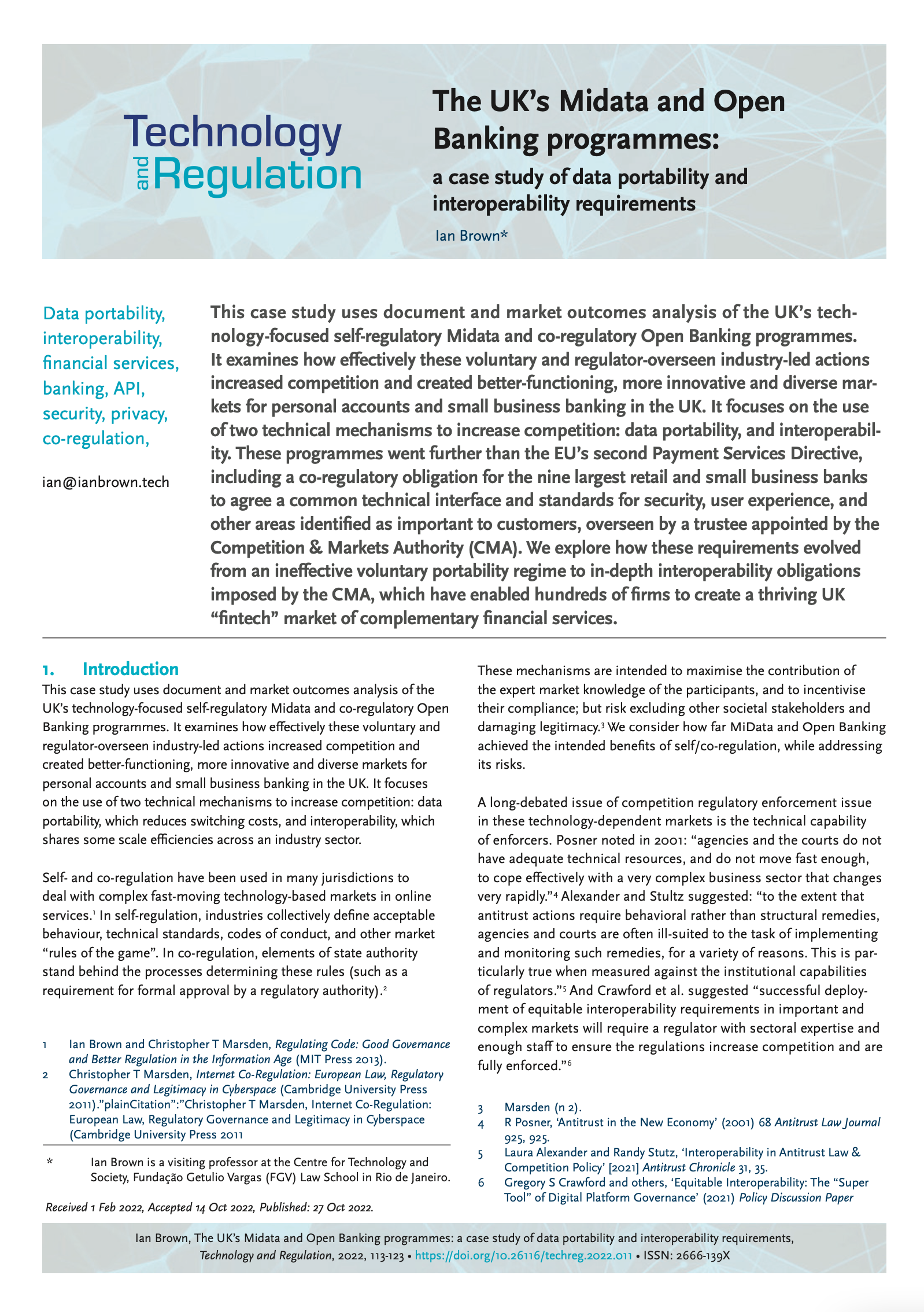The UK’s Midata and Open Banking programmes
A case study in data portability and interoperability requirements
DOI:
https://doi.org/10.26116/techreg.2022.011Keywords:
Data portability, interoperability, financial services, banking, API, security, privacy, co-regulationAbstract
This article examines how self-regulatory and then competition authority-imposed requirements for data portability (Midata) then interoperability (Open Banking) in the UK’s retail banking markets were used to increase competition and create better-functioning, more innovative and diverse markets for personal accounts and small business banking, and related services. These requirements went further than the EU’s second payment services directive, including a co-regulatory obligation for the nine largest retail and small business banks to agree a common technical interface (API) and standards for security, user experience, and other areas identified as important to customers, overseen by a trustee appointed by the Competition & Markets Authority. This case study explores how these requirements evolved from ineffective portability requirements to in-depth interoperability obligations, which have enabled hundreds of firms to create a thriving UK “fintech” market of complementary financial services, although so far having less impact on direct competition with incumbent banks.
Downloads

Downloads
Published
How to Cite
Issue
Section
License
Copyright (c) 2022 Ian Brown

This work is licensed under a Creative Commons Attribution-NonCommercial-NoDerivatives 4.0 International License.
Submissions are published under a Creative Commons BY-NC-ND license.’




